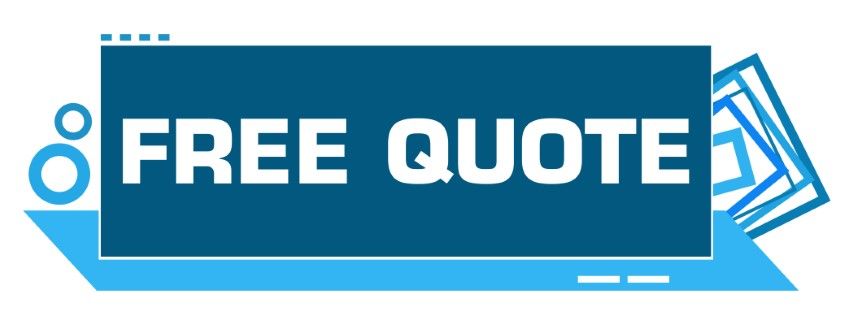CALL US NOW: (555) 555-5555
Debt Settlement Programs
in Tucson AZ
Escape the Debt Trap: Consolidate and Reclaim Your Financial Peace!
Take the first step towards financial freedom →
Tucson Debt Consolidation
Debt settlement is a financial strategy used to resolve outstanding debts by negotiating with creditors to reduce the total amount owed. Instead of paying the full balance, you work with a debt settlement company to offer a lower lump sum payment, which the creditor may accept as full payment. This can help ease financial burdens for individuals struggling with significant debt.
How It Work
Debt settlement programs involve negotiating with creditors on your behalf to lower the total debt amount. The process begins with a thorough evaluation of your financial situation. Based on this assessment, the debt settlement company will offer a reduced payment to your creditors. The key is to demonstrate to creditors that settling for less is a better option than risking a prolonged recovery of the full amount.
The Process
The debt settlement process typically follows these steps:
- Initial Consultation: Assess your financial status and discuss your debt relief options.
- Create a Plan: Develop a customized debt settlement plan based on your ability to pay and the amount owed.
- Negotiate with Creditors: The settlement company negotiates with your creditors to agree on a lower amount.
- Settlement Agreement: Once creditors accept the offer, you make the agreed payment.
- Debt Resolution: After payment, the settled debt is considered resolved, and your credit report is updated.
Alternatives
While debt settlement can be effective, it is not the only option. Alternatives include:
- Debt Management Plans (DMPs): Work with a credit counseling agency to consolidate debts into one monthly payment.
- Debt Consolidation Loans: Obtain a loan to pay off multiple debts, leaving you with a single monthly payment.
- Bankruptcy: A legal process that discharges most debts but can have long-term effects on your credit.
Each alternative has its pros and cons, and it is important to consider them based on your specific financial situation.

We will get back to you as soon as possible.
Please try again later.
How to Qualify
To qualify for debt settlement programs, you generally need to meet certain criteria:
- Significant Unsecured Debt: Debt settlement is typically used for unsecured debts like credit card balances.
- Financial Hardship: Demonstrate an inability to pay the full amount due to financial hardship.
- Regular Income: Have a stable income to make the reduced settlement payments.
A debt settlement company will evaluate your financial situation to determine if this option is right for you.
Importance of Understanding Debt Settlement as a Financial Option
Understanding debt settlement is crucial as it can impact your financial future. It provides an opportunity to reduce debt burdens but also affects your credit score and may involve tax implications. Knowing how it works and its effects helps you make informed decisions about managing your finances.
If you’re struggling with debt and considering debt settlement, we’re here to help. Contact us today to learn more about how our
debt settlement programs in Tucson, AZ can assist you in achieving financial relief. Our team is ready to guide you through the process and answer any questions you may have.
Key Figures in Debt Settlement Programs
Debt settlement programs are designed to help individuals manage and reduce their debt through negotiation with creditors. Understanding the roles of the key players involved in these programs is essential for navigating the process effectively. Here’s an overview of the main participants and their functions.
Debtor
The debtor is the individual seeking relief from their debt. They initiate the debt settlement process by reaching out to a debt settlement company or negotiating directly with creditors. The debtor’s financial situation, including the total amount owed and their ability to pay, will influence the negotiation outcomes.
Debt Settlement Company
A debt settlement company acts as an intermediary between the debtor and their creditors. These companies are often hired to negotiate on behalf of the debtor to reduce the total amount owed. They typically charge fees for their services, which may include a percentage of the settled debt or monthly service fees. It is crucial to choose a reputable company to ensure that they follow ethical practices and comply with regulatory requirements.
Creditors
Creditors are the entities to whom the debtor owes money. They can include credit card companies, banks, medical providers, and other lenders. During the settlement process, creditors agree to accept a reduced amount as full payment for the debt. The willingness of creditors to negotiate often depends on the debtor’s financial situation and the likelihood of recovering the full amount owed.
Credit Counselors
Credit counselors provide financial education and advice to individuals struggling with debt. They may assist in creating a budget, managing finances, and exploring alternative solutions such as debt management plans. While not directly involved in debt settlement negotiations, credit counselors can help debtors understand their options and make informed decisions.
Attorneys
In some cases, attorneys may be involved in debt settlement programs, particularly if legal issues arise during the process. Attorneys can provide legal advice, review settlement agreements, and represent the debtor in negotiations with creditors. They are especially useful if there are disputes or if the debtor is facing legal action related to their debts.
Collection Agencies
Collection agencies are often involved when a debtor’s account is significantly overdue. These agencies may take over the collection efforts from the original creditor. During debt settlement negotiations, collection agencies may need to be involved to reach an agreement on the reduced payment amount.

Each key player in a debt settlement program has a distinct role that contributes to the overall process. Understanding these roles helps debtors navigate the settlement process more effectively and work towards reducing their debt burden. Whether through direct negotiation or with the assistance of professionals, each participant plays a critical part in reaching a satisfactory resolution.
Debt Categories Eligible for Settlement Programs
Debt settlement programs offer a structured way to manage and reduce your debt burden. Understanding which types of debt can be settled through these programs is essential for making informed financial decisions. Here’s a look at the common types of debt eligible for settlement.
Credit Card Debt
Credit card debt is one of the most frequently settled types of debt through settlement programs. Many people accumulate credit card debt due to high interest rates and unexpected expenses. In a debt settlement program, you negotiate with creditors to pay a reduced amount of the total debt owed. This process can significantly lower the amount you need to repay compared to the original balance.
Medical Bills
Medical expenses can quickly become overwhelming, especially if they are not covered by insurance. Medical bills are often eligible for debt settlement. By enrolling in a settlement program, you can negotiate with healthcare providers to reduce the total amount owed. This can be particularly helpful if you face substantial medical costs and need relief from mounting bills.
Personal Loans
Personal loans, which are typically unsecured and used for various purposes, can also be settled through debt settlement programs. These loans may include loans from family, friends, or other financial institutions. By negotiating a reduced payoff amount, you can lower the overall debt and work towards financial stability.
Unsecured Business Loans
For small business owners, unsecured business loans can be a significant financial burden. These loans, which are not backed by collateral, can often be settled through a debt settlement program. Negotiating with lenders to reduce the amount owed can provide relief and help manage business finances more effectively.
Utility Bills
Utility bills, such as those for electricity, water, or gas, are often overlooked when considering debt settlement. However, these bills can sometimes be included in settlement programs. If you have outstanding utility bills and face financial hardship, negotiating a reduced payment with your utility providers might be an option.
Payday Loans
Payday loans are short-term loans with high interest rates, often leading to a cycle of debt. These loans are eligible for settlement programs, where you can negotiate to pay a reduced amount. Settling payday loans can help break free from the cycle of borrowing and high interest payments.
Collection Accounts
Debts that have been sent to collection agencies are also candidates for settlement. Once a debt is in collections, it can be challenging to manage. Debt settlement programs offer a way to negotiate with collection agencies to reduce the total amount owed. This can help resolve debts more effectively than continued payments or legal action.

In summary, debt settlement programs can address a variety of debt types, including credit card debt, medical bills, personal loans, unsecured business loans, utility bills, payday loans, and collection accounts. Each type of debt may require different approaches and negotiations. Understanding which debts can be settled and how the process works is crucial for managing and reducing your financial obligations.
LET'S CONNECT!
Our goal is to help you manage and reduce your debt more effectively. By consolidating multiple debts into a single loan, we simplify your payments and potentially lower your interest rates. Our experienced team works closely with you to understand your unique financial situation and tailor a consolidation plan that meets your needs. Whether you are dealing with credit card debt, personal loans, or other financial obligations, we are here to provide support and solutions. Contact us today to learn more about how we can assist you.